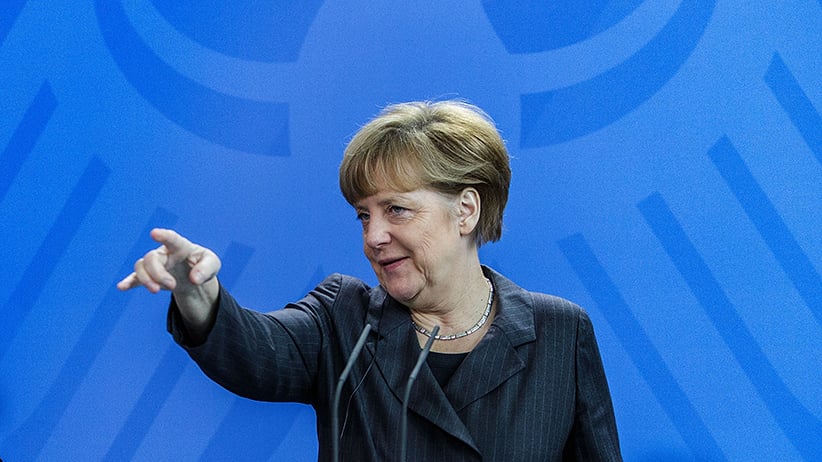Newsmaker of the day: Angela Merkel
Newsmaker, Feb. 6: The German chancellor reaches out to Putin in a bid to broker peace in Ukraine
Carsten Koall/Getty Images
Share

Ukraine’s descent into ever-deeper violence may be unstoppable, at least until much more blood is spilled. But if there is to be a diplomatic solution, it will almost certainly owe much to the interventions of German Chancellor Angela Merkel.
Merkel is in Moscow today with French President François Hollande in the hopes of obtaining an agreement with Russian President Vladimir Putin that might freeze, or even end, the war in southeastern Ukraine, where Russian-backed separatists have been waging an insurrection since last spring. Fighting has killed more than 5,000 people and displaced more than a million. Russia denies it has sent soldiers or hardware to the fight, despite ample evidence to the contrary.
Merkel’s high-profile outreach to Putin is an unusual move for her. She is by nature cautious, and there is no guarantee that this summit will be successful. It also comes at time when a possible split is emerging among Ukraine’s Western allies. The United States is contemplating sending lethal “defensive” weapons to Ukrainian forces in order to raise the cost to Moscow of its military interference in Ukraine. Germany, along with most European nations, opposes such a move out of fear that it would only escalate the conflict. Putin may be hoping he can exploit this difference.
The German chancellor’s trip solidifies her position as the leader of Europe, especially regarding its confrontation with Russia. Merkel has come to this role somewhat reluctantly. Like many of her fellow citizens, she views Germany’s re-emergence as the main power in Europe through an uncomfortable historical lens.
Yet, as she approaches 10 years in power, and with a long relationship with Putin that is marked by mutual respect, if not affection, there is simply no one else. Hollande is in Moscow as Merkel’s accessory, an attempt to show Putin that he’s dealing with all of Europe. But it’s Merkel who speaks for the continent.